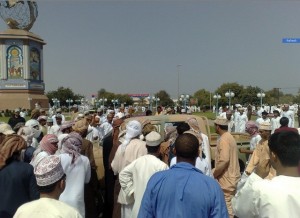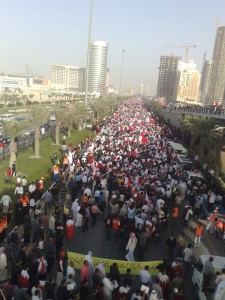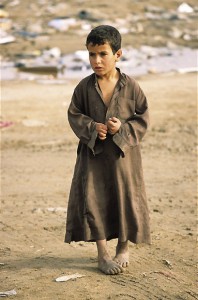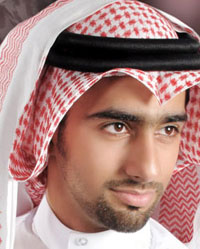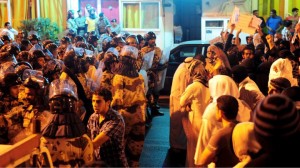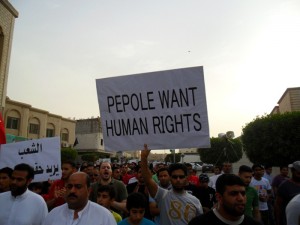
The Saudi regime is under siege. To the west, its heaviest regional ally, the Egyptian dictator Hosni Mubarak, has been ousted. To its north, Syria and Jordan are gripped by a wave of protests which shows no sign of receding. On its southern border, unrest in Yemen and Oman rages on. And troops have been dispatched to Bahrain to salvage its influence over the tiny kingdom exerted through the Khalifa clan, and prevent the contagion from spreading to Saudi Arabia’s turbulent eastern provinces, the repository of both its biggest oil reserves and largest Shia population.
Such fears of contagion no longer seem far-fetched. Shortly after the toppling of the Tunisian dictator, an unidentified 65-year-old man died after setting himself on fire in Jizan province, just north of the border with Yemen. Frequent protests urge political reform, and internet campaigns demand the election of a consultative assembly, the release of political prisoners, and women’s rights – one that called for a day of rage on 11 March attracted 26,000 supporters.
The government’s response was in keeping with a country named the region’s least democratic state by the Economist Intelligence Unit last year. Tear gas and live bullets were fired at peaceful demonstrators as helicopters crisscrossed the skies. One of the 11 March organisers, Faisal abdul-Ahad, was killed, while hundreds have been arrested, joining 8,000 prisoners of conscience – among them the co-founder of the Saudi Civil and Political Rights Association, Mohammed Saleh al-Bejadi. Many Saudis have even been detained when seeking news of relatives at the interior ministry, like Mubarak bin Zu’air, a lawyer whose father and brother have long been held without charge, and 17-yearold Jihad Khadr whose brother Thamir, a rights activist is also missing. A short video tackling the taboo of political prisoners attracted over 72,000 views since its release 4 days ago.
Although demands for change date back to 1992’s Advice Memorandum – a petition for reform submitted by scholars to the king – the Tunisian and Egyptian revolutions have accelerated them. In an unprecedented move, a group of activists and intellectuals defied the official ban on political organisation to announce the formation of the kingdom’s first political party (all 10 founding members have since been arrested). And calls for reform have even come from the royal family, with Prince Turki Al Faisal appealing for elections to the Shura, the appointed parliament, at the Jeddah Economic Forum two weeks ago.
What had been whispered behind closed doors for years is being discussed openly not only in social networking sites, but even in front of cameras – as Khaled al-Johani did to a BBC crew in defiance of the hundreds of police, disappearing soon after. And although the regime seeks to appeal to sectarian divisions and invoke the threat of Iran in order to delegitimise dissent, the truth is that the discontent is found across Saudi society, fed by political repression and developmental failure, as a result of corruption, government malfunctioning, and the squandering of billions on arms. You need look no further than ravaged Jeddah after the floods of 2009 and 2011 to see that marginalisation is not unique to the kingdom’s Shia.
Along with the visible political threats facing the regime, it is beset by a more potent social challenge. This is the product of the advancing process of modernisation in Saudi society, with growing urbanisation, mass education, tens of thousands of foreign-taught students, and widespread communication media, with one of the region’s highest percentages of internet users (almost 40%, double that of Egypt). The country’s gigantic oil wealth has taken the society from a simple, predominantly desert existence to a model of affluent consumerism in the space of a few decades. Yet this rapid transformation has not been matched at the culture level, causing a yawning gap between social reality and a conservative ideology imposed by the regime and justified via an intimate alliance between the ruling clan and the Wahhabi clerical establishment with its austere Hanbali interpretation of Islam. This is not to say that the clerical council and its religious police are the decision-makers in Saudi Arabia. They are mere government employees who provide a divine seal for choices made by the king and his coterie of emirs. Their role is to issue the monarch with edicts like the one that sanctioned the “appeal to infidels for protection” when US troops were summoned to the Gulf in 1991.
As a price for political quietism, the clerics’ hands are left untied in the social realm, where they are granted unlimited authority over the monitoring and control of individual and public conduct. No one has paid a greater price for this ruler-cleric pact than women. While turning a blind eye to the monarch and his elite’s political authoritarianism, financial corruption, and subordination to American diktats, these divine warriors turn their muscle on women instead. Every minutia of their lives is placed under the clerics’ watchful gaze, rigorously monitored by draconian religious edicts rejected by the majority of Muslims; they are denied the right to drive, enter into any form of legal agreement, vote, or even receive medical care without a guardian’s consent. But as Hanadi, a Saudi friend, put it: “It’s all hypocrisy. While we are forbidden from baring any flesh in public, including our faces, the TV channels funded by the emirs are the most promiscuous ones around. You don’t see any black robes or niqabs there, only half-naked young girls gyrating to the beat of cheap pop music. It’s a shameless exploitation of religion.”
Now Saudi Arabia finds itself in the eye of the Arab revolutionary storm, its religious and financial arms have been deployed to fortify the status quo. As well as made-to-fit fatwas prohibiting dissent as fitna (division and social strife) and demonstrations and pickets as forms of “insurrection against rulers”, the regime has resorted to bribing its subjects in return for allegiance and acquiescence. On his return from a three-month medical trip in US, the ailing 87-year-old King Abdullah announced financial handouts worth an astonishing $129bn – more than half the country’s oil revenues last year – including a 15% rise for state employees, reprieves for imprisoned debtors, financial aid for students and the unemployed, and the promise of half a million homes at affordable prices – not to mention increases to the religious police budget.
Externally the regime draws sustenance from its “special relationship” with the US. In return for keeping the oil supply steady and pouring billions into the American treasury through arms deals, the Al-Saud family gets a US commitment to complete protection.
Does this mean that the country’s fate is to remain ruled by an absolutist system where the notion of the citizen is non-existent and power is monopolised by an ageing king and his clan? That is unlikely, for Saudi Arabia is not God’s eternal kingdom on Earth and is not impervious to the change that is required internally and regionally. The question is not whether change is coming to Saudi Arabia, but what its nature and scope will be.
By Soumaya Ghannoushi




